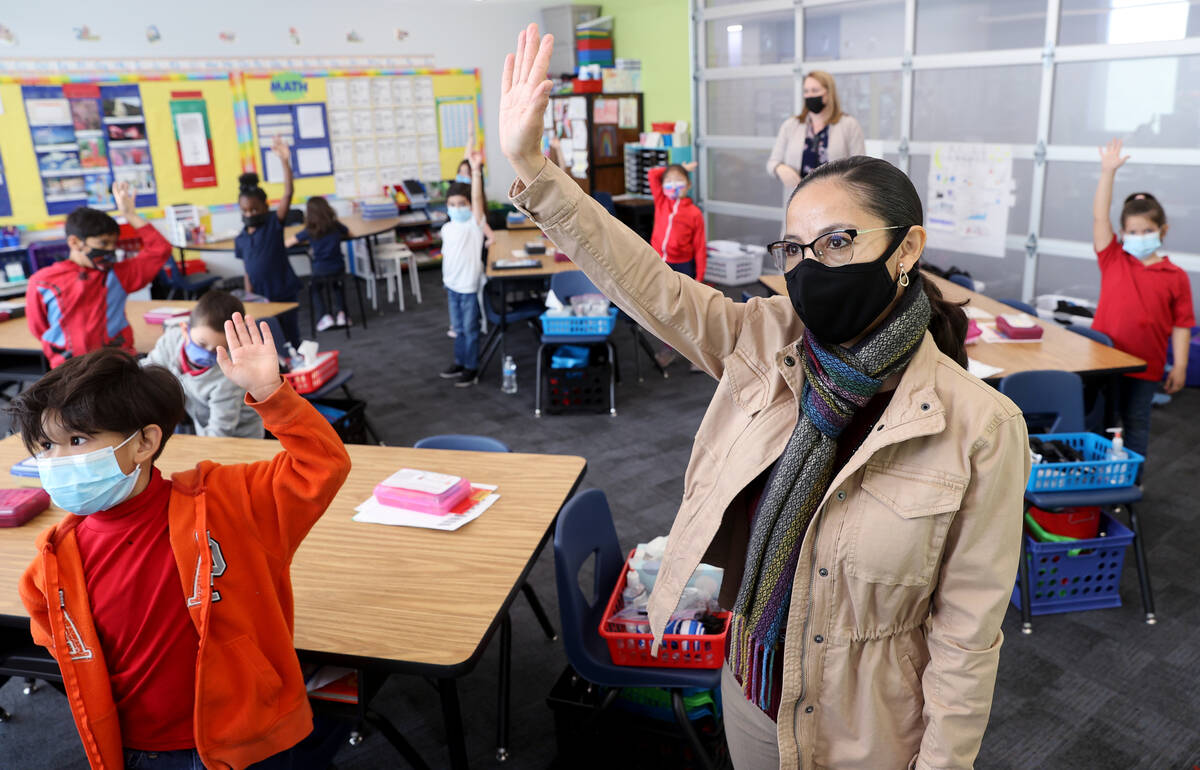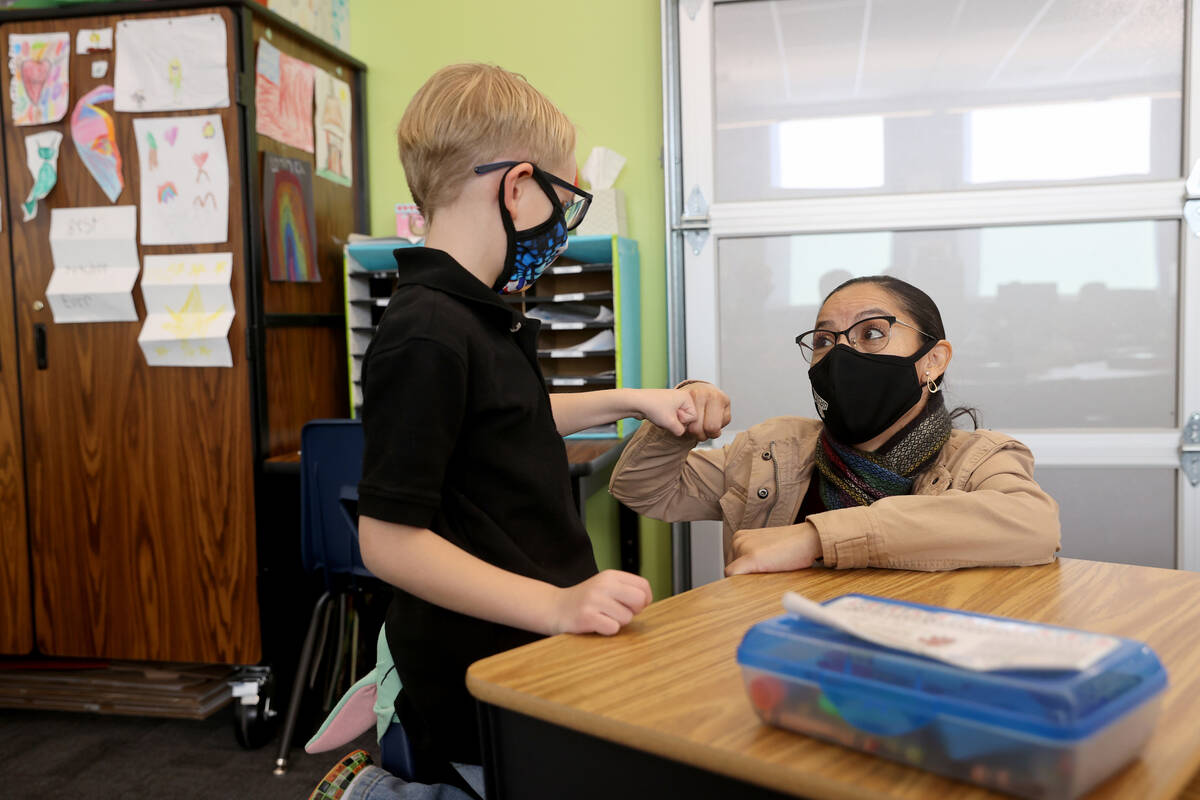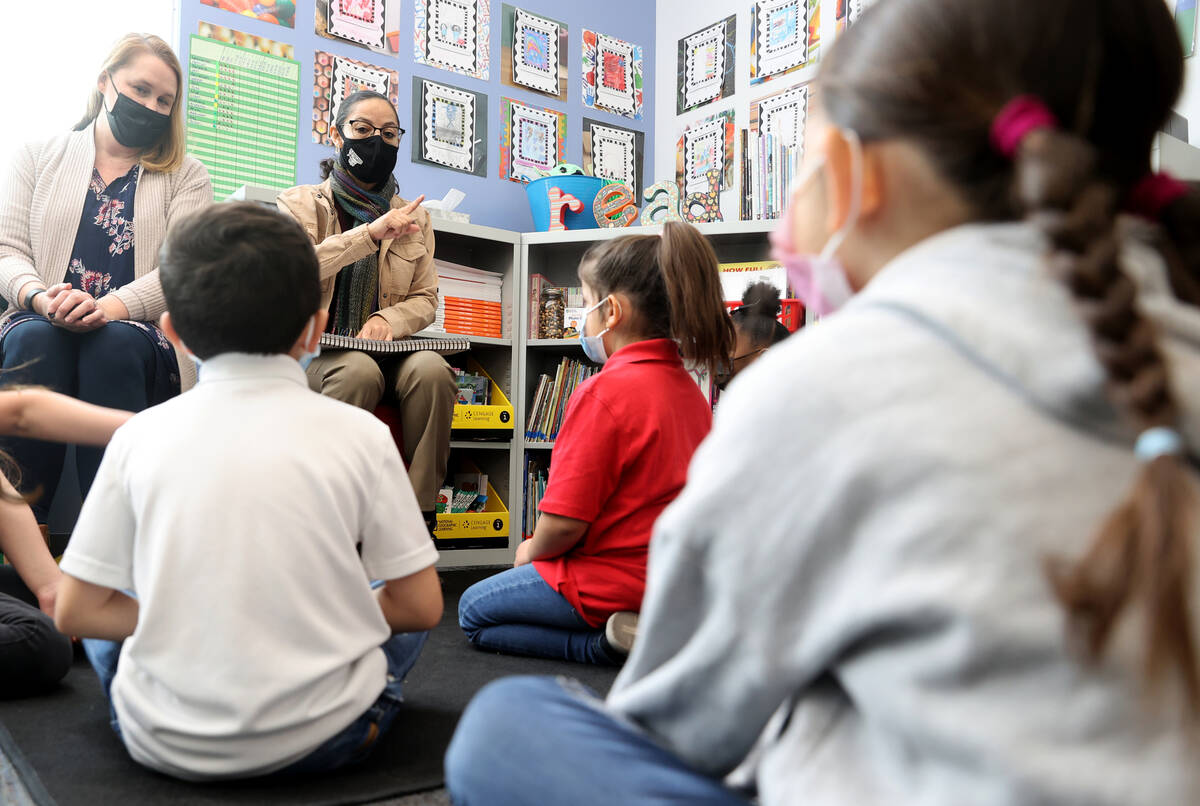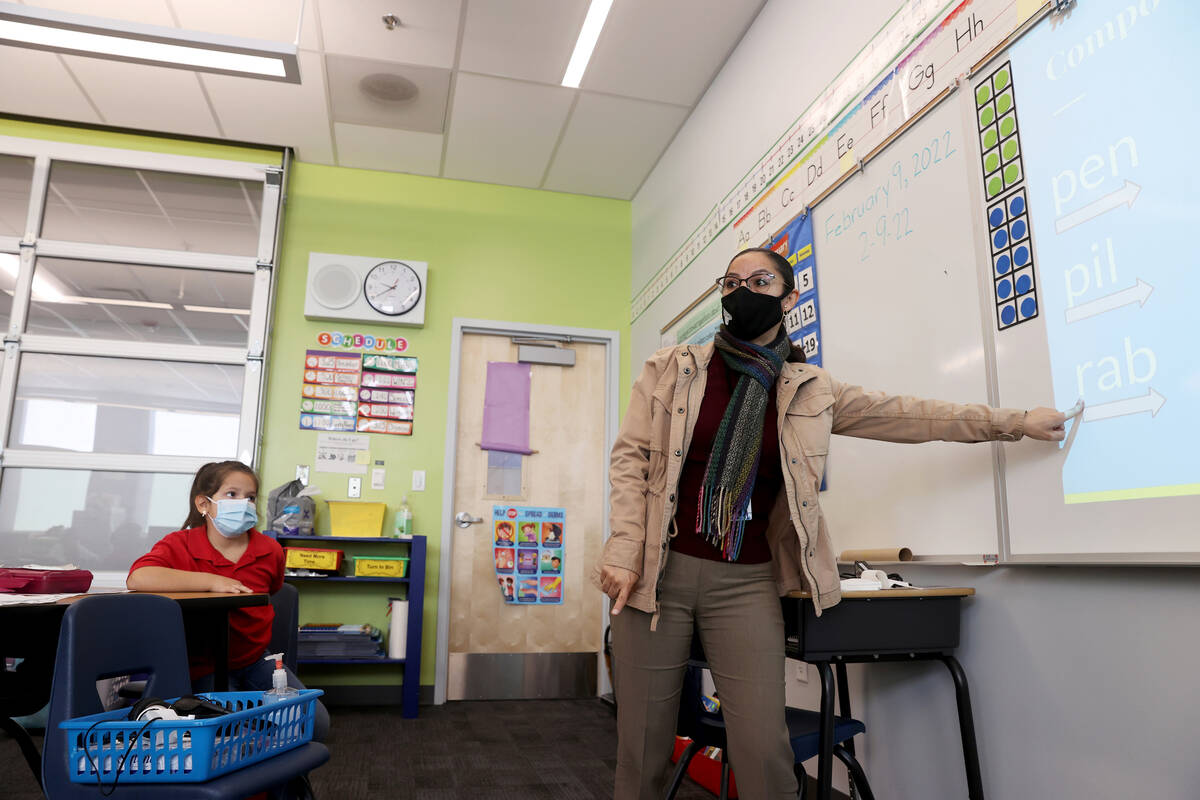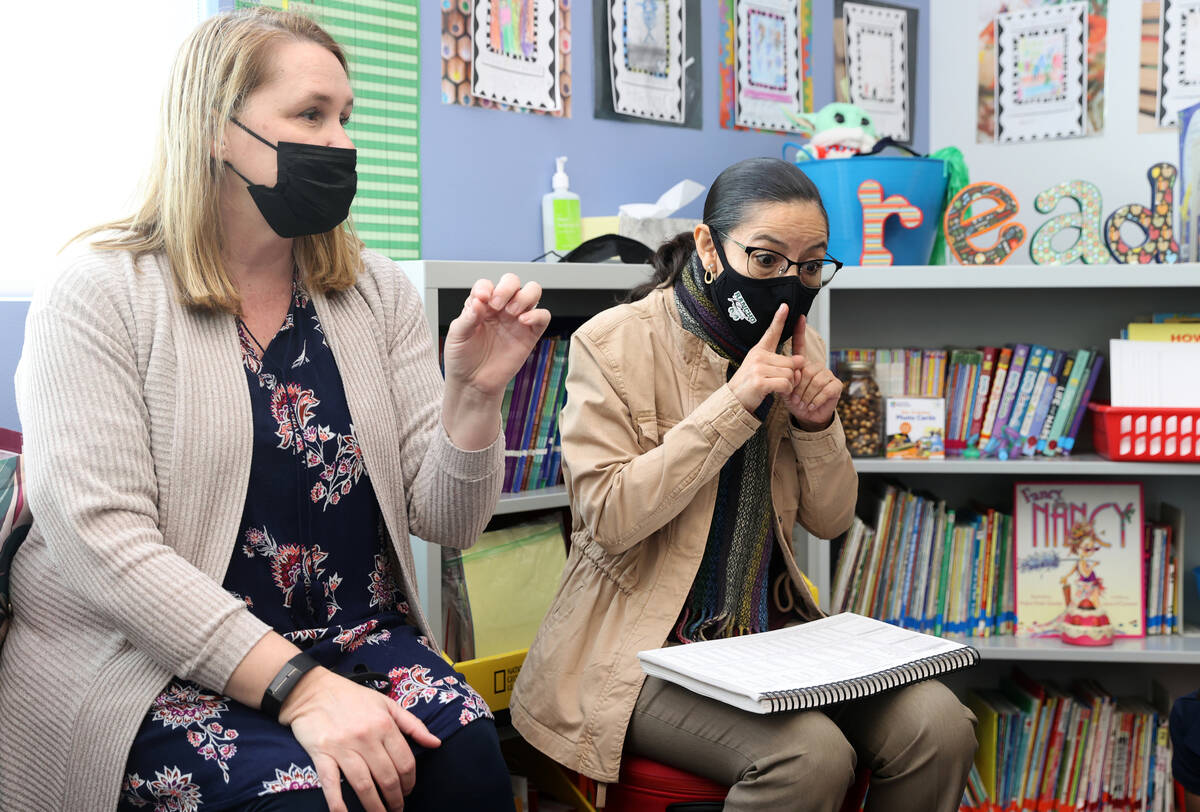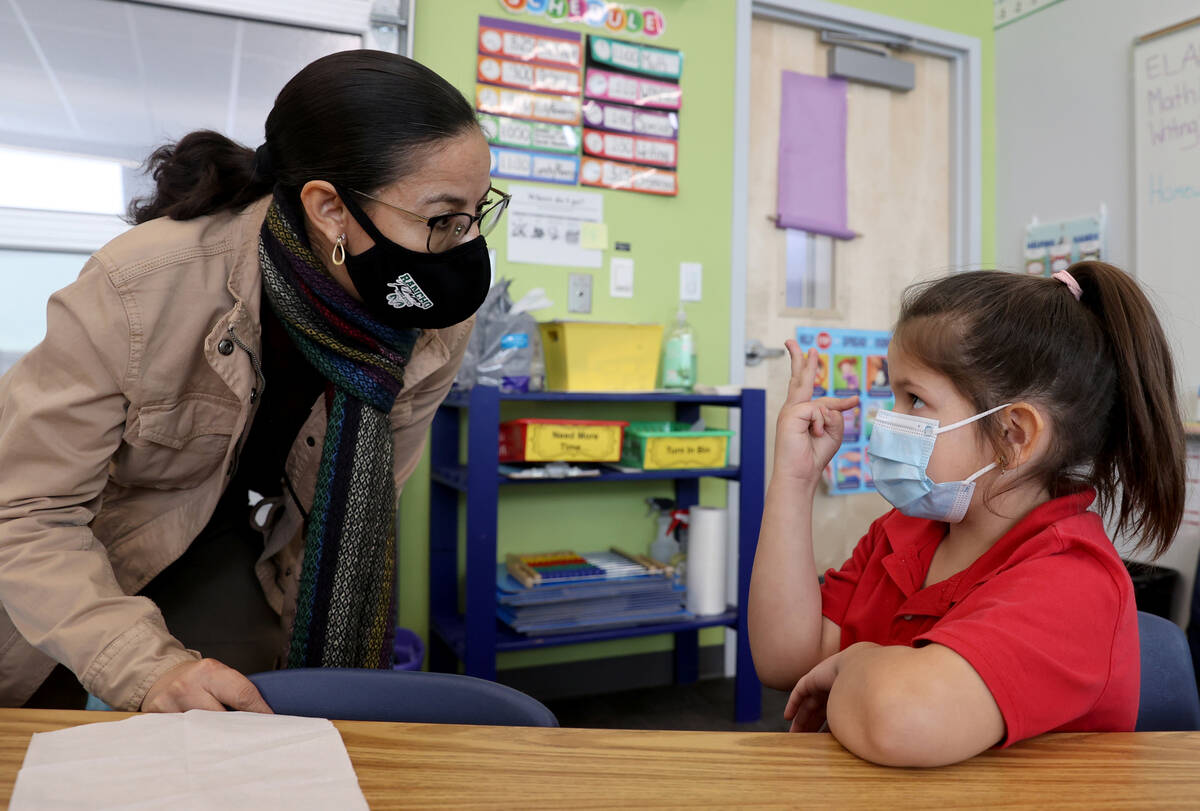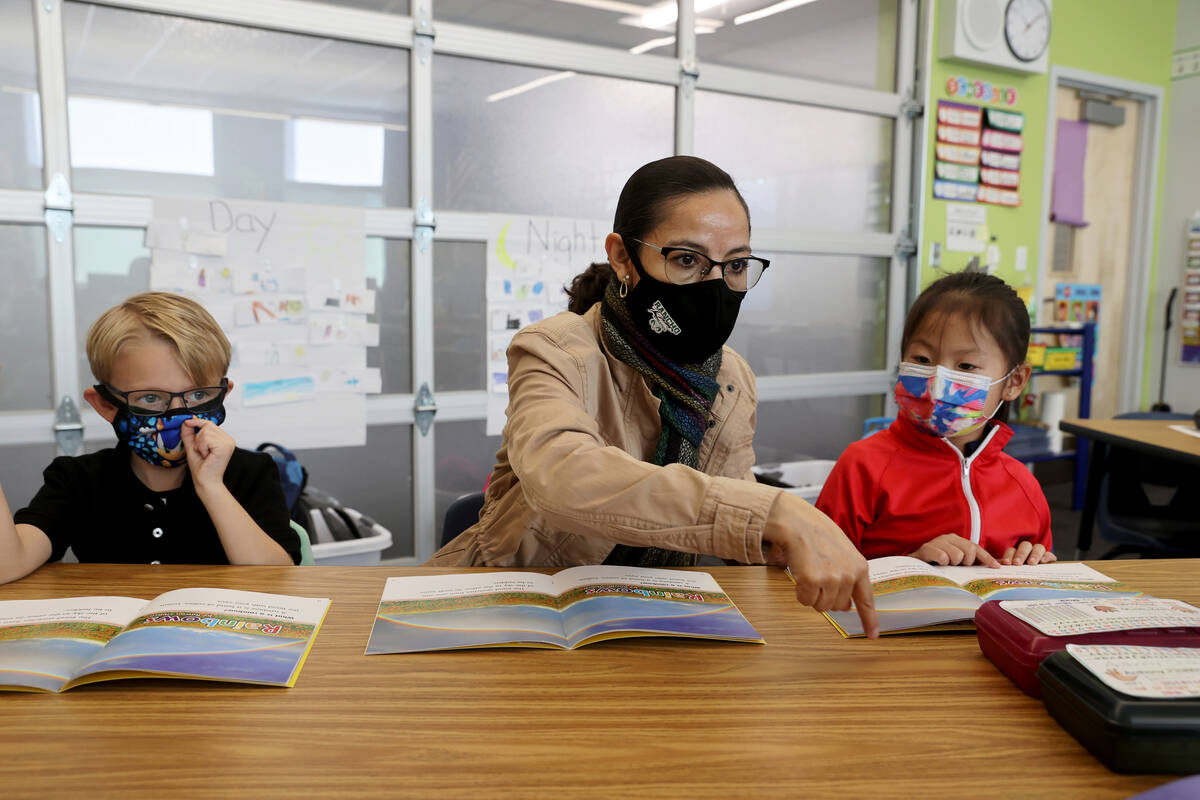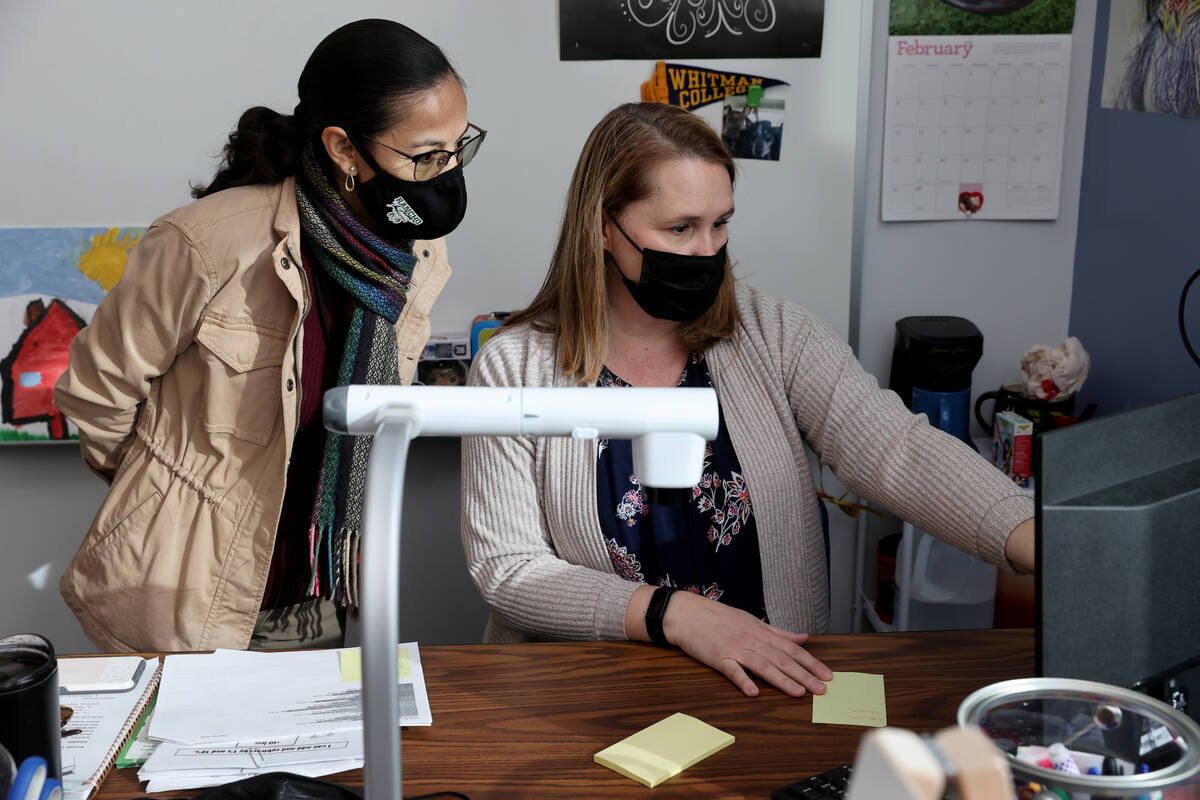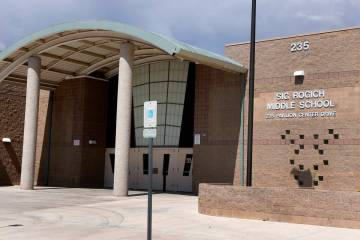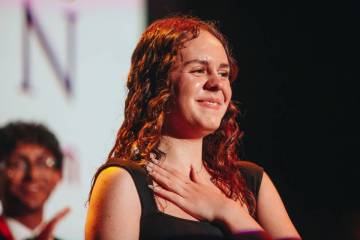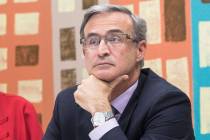UNLV program helps paraprofessionals become teachers
Maria Romero has always wanted to be a teacher, but after her son was diagnosed with autism, her focus was on meeting his needs.
Years later, she’s now realizing her career dream thanks to a UNLV program that helps those already working in schools earn a bachelor’s degree and become a licensed teacher.
Romero began in UNLV’s paraprofessional pathways project in July 2021 and started student teaching in January in a first grade class at Harris Elementary School in Las Vegas. She plans to wrap up classes at the end of June.
Romero, who is on track to begin teaching full time in August, said she’s extremely grateful for the program and hopes it can expand. “UNLV has been nothing but beautiful with us.”
UNLV’s paraprofessional pathways project launched this fall to help support staff and instructional aides to become a licensed teacher in as little as one year. The program covers tuition and fees for participants.
The program is expected to cost about $9 million and is funded by UNLV, the Clark County School District and state grants, according to a university news release.
Currently, 105 students are participating — 36 who started in summer 2021 and 69 who began their studies in January.
Now, UNLV is accepting applications for the next cohort of students, who’ll start this summer, and applications are due March 11. It aims to enroll between 50 and 100 students in the incoming class.
Participants can earn a bachelor’s degree in elementary education, special education or early childhood education. They must already have an associate degree or at least 60 credits of relevant coursework.
The idea for the program came about through UNLV President Keith Whitfield and College of Education Dean Danica Hays to address the critical teacher shortage, said Kenny Varner, a professor of literacy education and one of several faculty members involved with the program.
There are many people working in classrooms who are paraprofessionals and school support professionals, he said. “These folks have real experiences very similar to teachers and they do the daily work.”
In addition to providing more teachers for local public schools, the program also aims to diversify the pool of educators so they’re more representative of the students they serve.
More than 70 percent of program participants are from historically underrepresented groups, Varner said.
UNLV’s paraprofessional pathways project is mostly offered online, although the special education and early childhood education tracks have some Saturday classes.
The program is a combination of four and eight-week classes that remain flexible and tuned to a working professional in an educational setting, Varner said. “We’re working to engage them as adults who have real experience coming in the door.”
UNLV is working with the Clark County School District to ensure program participants can complete student teaching hours during their work day.
Senate Bill 352, which passed during the state’s 2021 legislative session, allows a paraprofessional to complete accelerated student teaching while keeping their current job.
The school district, which has more than 300,000 students, is facing a teacher shortage that has worsened since the school year began in early August.
It had about 850 licensed classroom vacancies as of mid-December. The district didn’t respond to a Review-Journal request by deadline for an updated number of vacancies or for a comment about the paraprofessional pathways project.
Statewide, 3,000 more teachers are needed to meet class size ratios recommended by the State Board of Education.
The Nevada Department of Education launched a $20.7 million “Incentivizing Pathways to Teaching” two-year grant program this fall, paid for using federal coronavirus relief money.
It offers stipends for those enrolled in educator preparation programs — up to $2,000 in tuition assistance for a student’s last three semesters and up to $8,400 during their student teaching semester.
‘Always wanted to be a teacher’
Romero, who already has an associate degree in special education, is pursuing a bachelor’s degree in elementary education.
Romero is a specialist with Jobs For Nevada’s Graduates and has years of experience with teaching employability skills to high school students.
“I have always wanted to be a teacher,” she said. But pursuing that dream was extremely difficult since her son was diagnosed with autism around age 6 and she went through a lot with that process, she added.
Romero said she has experienced how far her son has progressed thanks to his teachers and services he has received, and it motivated her to have that kind of impact in other students’ lives.
Now, her son is a 17-year-old senior at East Career &Technical Academy who’s slated to graduate this spring.
Romero said a friend knew about UNLV’s new project and told her she’d be a perfect fit. Before that, she had already been looking into college options, but didn’t qualify for much financial aid.
Romero said she was born and raised in Mexico, and English isn’t her first language. “We need more people that look like us in the classrooms.”
It’s a tough balancing act between working, taking classes and student teaching, she said, noting it’s “very intense” but her professors are supportive. “Whenever we need them, they’re there for us.”
Romero said her job is also extremely supportive of allowing her to spend a full day once a week on student teaching.
Once she earns a bachelor’s degree, she hopes to continue on to earn a master’s degree — ideally, in special education.
Contact Julie Wootton-Greener at jgreener@reviewjournal.com or 702-387-2921. Follow @julieswootton on Twitter.



